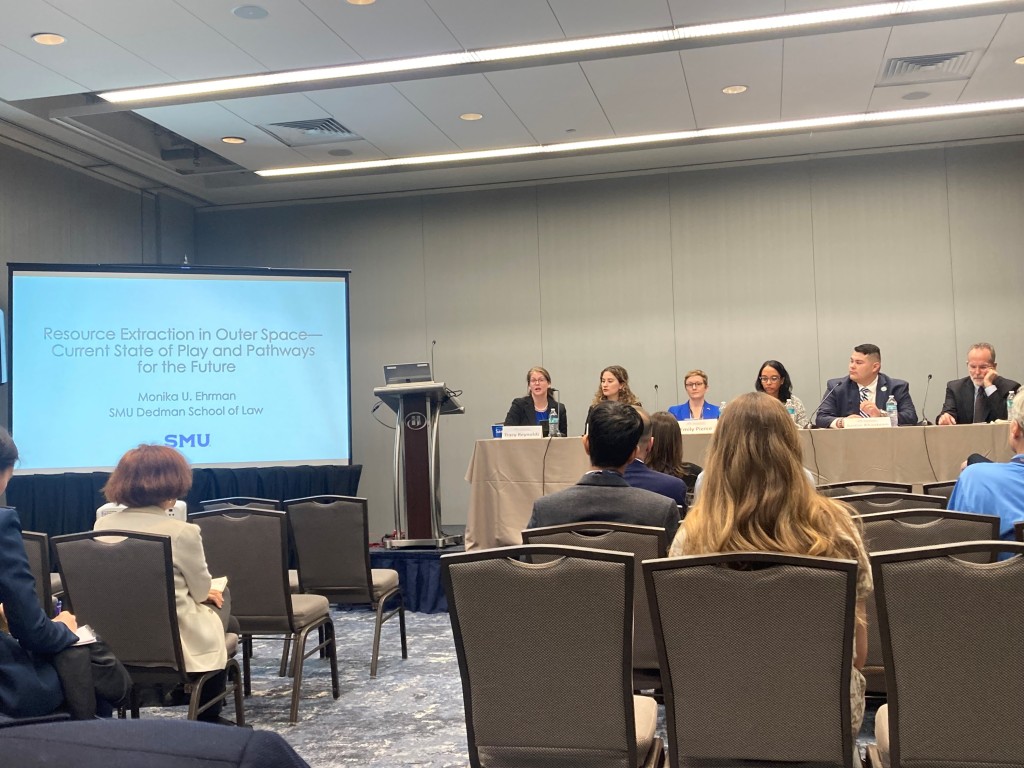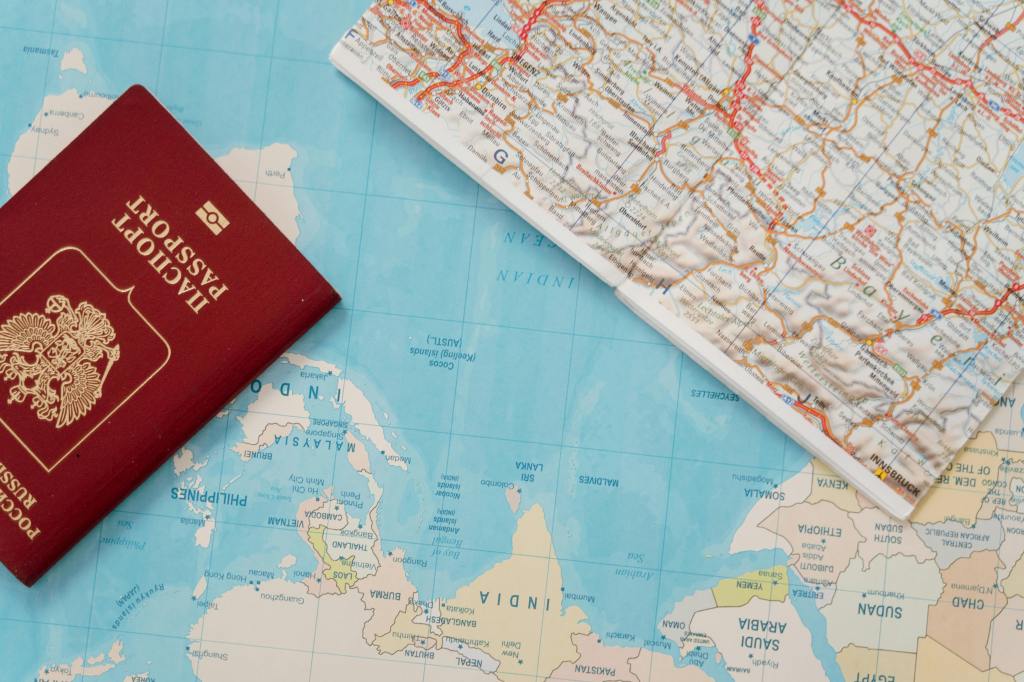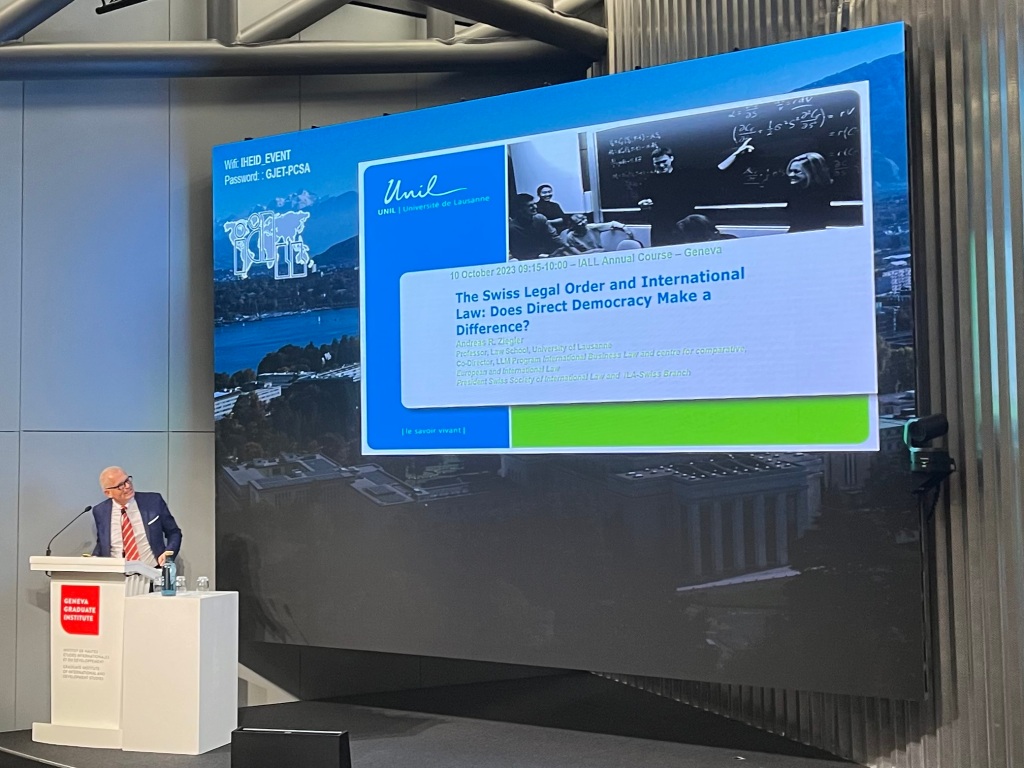By Lucie Olejnikova
GlobaLex March/April 2024 issue is live featuring seven article updates: Vatican, Trinidad & Tobago, Researching Customary International Law, Researching Third-Party Funding in Investor-State Dispute Settlement, Researching the Systems of the United Nations Criminal Tribunals, MERCOSUR, and Researching the League of Nations Documents. Webmasters and content managers, please update your pages. We thank all our wonderful authors, new and established, for their excellent contributions and commitment to open access authorship!

UPDATE: Researching the Law of the Vatican City State by Angelo Coccìa at https://www.nyulawglobal.org/globalex/Vatican1.html.
Angelo Coccìa is an Italian lawyer, cassationist, and rotal. He graduated in Law from the University of Rome “La Sapienza” with a Thesis in Ecclesiastical Law. Graduated in Canon Law from the Pontifical Lateran University. He also holds a diploma as a Rotale Lawyer at the Rotale Studies of the Chancellery Palace in Rome. He is a member of the Archsodalizio of the Roman Curia and adviser of the Coetus Advocatorum Association. He is registered in the Register of the Apostolic Tribunal of the Roman Rota, at the Register of Lawyers and Prosecutors of the Tribunals of the Vicarage of Rome, at the tribunals of the Vatican City, all courts in which he permanently works.
UPDATE: Trinidad & Tobago Law and Legal Research by C. Deane at https://www.nyulawglobal.org/globalex/Trinidad_Tobago1.html.
C. Deane is the Foreign. Comparative and International Law Librarian for University of California Law, San Francisco. They received their primary and secondary education in Trinidad. They have a B.A. in Cultural Anthropology with a Certificate in Latin American Studies from Princeton University, an M.A. in Cultural Anthropology and a J.D. with a Certificate in International and Comparative Law from the University of Tulsa in Oklahoma, and an M.L.I.S. degree from San Jose State University, School of Library and Information Science.
UPDATE: Researching Customary International Law, State Practice, and the Pronouncements of States Regarding International Law by Renu Urvashi Sagreiya at https://www.nyulawglobal.org/globalex/Customary_International_Law1.html.
Renu Urvashi Sagreiya is the Reference & Digital Collections Librarian at the Jerene Appleby Harnish Law Library at Pepperdine University Caruso School of Law. She has a B.A. in Sociology & Anthropology with a Minor in Spanish from Agnes Scott College, a J.D. from Drexel University Thomas R. Kline School of Law, and is an M.S.L.S. Candidate at Pennsylvania Western University, Clarion.
UPDATE: Researching Third-Party Funding in Investor-State Dispute Settlement by Xin (Sherry) Chen at https://www.nyulawglobal.org/globalex/Third-Party_Funding_Investor-State_Dispute_Settlement1.html.
Xin (Sherry) Chen is the Associate Director of Collection Strategy at the Biddle Law Library, University of Pennsylvania Carey Law School. She teaches both U.S. and international legal research courses and is active in AALL’s Foreign, Comparative & International Law section, currently chairing the Asian Law Interest Group. She holds a B.A. from Shanghai International Studies University, China, and both a J.D. and a M.S. in Library Information Science from the University of Michigan, Ann Arbor. She is admitted to practice law in the State of New York. The author would like to thank Alex Bado, Graduate Fellow, Law & Justice Program, Boston College Law School, for his editorial support and contributions.
UPDATE: Searching through Systems of the UN Criminal Tribunals by Devan Orr at https://www.nyulawglobal.org/globalex/UN_Criminal_Tribunals_Research_Guide1.html.
Devan Orr is the Foreign, Comparative, and International Law Librarian at William & Mary Law School. She teaches several legal research classes including Foreign and International Research, and L.L.M. Legal Writing and Research. She has a J.D. from Arizona State University Sandra Day O’Connor College of Law and an M.L.I.S. degree from the University of Arizona. She is the co-chair of the Publicity Committee of FCIL-SIS for AALL and an actively licensed attorney with the Arizona State Bar.
UPDATE: MERCOSUR Legal Research – Sources and Documents by Gloria Orrego Hoyos and Mariel Romani at https://www.nyulawglobal.org/globalex/Mercosur1.html.
Gloria Orrego Hoyos has a law degree from the Pontificia Universidad Javeriana in Bogotá, Colombia. She has a Masters in Constitutional Law and Human Rights from the Universidad de Palermo in Buenos Aires and a postgraduate degree in Library and Information Management from the Universidad de Ciencias Empresariales y Sociales (UCES) in Buenos Aires, Argentina. She is currently a professor in the Legal Research Methods course in the Law Department of the University of San Andrés and, in the same course at the Universidad Torcuato DiTella (UTDT). For 10 years she worked at the Max von Buch Library of the University of San Andrés in Buenos Aires as head of the reference services. She currently serves as a legal reference at the General Secretariat of Training and Jurisprudence of the Public Defender’s Office.
Mariel Romani is an Argentine librarian in charge of the Serials library at the Max von Buch Library at the Universidad de San Andrés, Buenos Aires, Argentina. She assists faculty in their research and oversees legal reference and information literacy at the institution.
UPDATE: Researching League of Nations Documents by Gabriela Femenia at https://www.nyulawglobal.org/globalex/League_Nations_Guide1.html.
Gabriela Femenia is the Director of the Law Library and Associate Professor of Law at Temple University Beasley School of Law. She received her J.D. from the University of Pennsylvania and her M.L.I.S. from the University of Washington. In addition, she holds degrees in History from the University of California, Berkeley, and Harvard University. For more articles, visit https://www.nyulawglobal.org/globalex/index.html.










